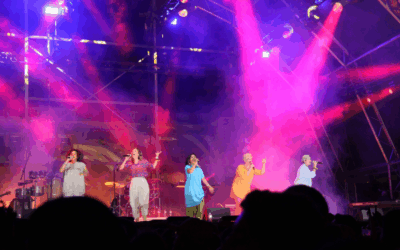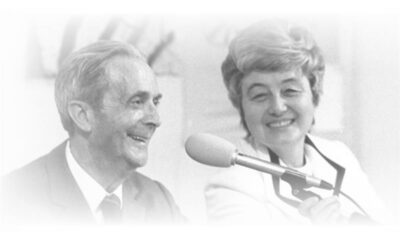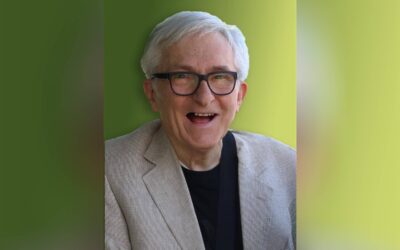“Christ’s demand for Peter’s love is not limited to one group or to the Roman Catholic Church, because all men form part of Christ’s fold. Consequently, all Christians are summoned to love, and first and foremost this love calls for unity, because lack of unity in a family brings suffering. This was the spirit that led me to understand my new task and to carry it out with all my heart and all the spiritual and material abilities that God has given me. I was blessed by the Lord and I thank Him deeply for calling me to serve Him in this field for such a long time during my work in His Church”. These were the words that Cardinal Johannes Willebrands said when he was interviewed by Vatican Radio in 1989. He was then 80 years old, and because of his old age, his task as President of the Pontifical Council for Promoting Christian Unity was coming to its end after a service of 20 years. Benedict XVI: “A pastor who worked indefatigably serving God’s people and promoting the unity of the Church”, one who gave “a new leap forward to the ecumenical dialogue”. These were the words the Pope wrote in his telegram when Cardinal Willebrands passed away on the 2nd of August. The Pope thanked the Lord for the life of the Cardinal, who died at the age of 97. His commitment to serve the ecumenical cause started in 1951, ten years before Vatican Council II. The gratitude of the Focolare Movement is very much alive: Since the 1960’s Cardinal Willebrands accompanied and encouraged the Movement’s ecumenical developments with wise farsightedness. A biographical note Cardinal Willebrands was born in Bovenkarspel, Netherlands, in 1909. A lecturer of philosophy and then a rector of the Major Seminary of Warmond, Holland, he immediately showed keen interest in the cause of Christian Unity, and in 1951 he organised a Catholic conference on the ecumenical question. In 1958, the Dutch bishops appointed him delegate for ecumenical activities. Two years later, Pope John XXIII appointed him secretary of the then recently established Pontifical Council for promoting Christian Unity which, during the Second Vatican Council – under the guidance of Cardinal Bea – made an important contribution to the writing of the documents relating to ecumenism, religious freedom and relations with non-Christian religions. He was consecrated bishop in 1964, and he promoted numerous ecumenical initiatives to intensify the dialogue between the Catholic Church and the other Christian Churches. His contacts were mainly with Orthodox, Anglican and Lutheran representatives. In 1969 he succeeded Cardinal Bea: Pope Paul VI appointed him president for the Secretariat for the Unity of Christians (later this was given the name of Pontifical Council for Promoting Christian Unity). After a little while he was made a cardinal. Brothers from various Churches give their witness Among the numerous witnesses given by our brothers and sisters of various Churches, we recall a very meaningful episode, witnessed by the German Evangelical Pastor Dieter Furst. In 1986, Pastor Furst spoke about a meeting that Cardinal Willebrands had at Centro Uno, the Ecumenical Centre of the Focolare Movement in Rome. He said that the Cardinal met a group that came from the Evangelical Church. Before this meeting with Cardinal Willebrands, the group feared that “the great and mighty Catholic Church wanted to crush the small and weak Evangelical Church”. The Pastor added that among the participants there were also representatives from the free Churches, who were really even more afraid of this. But the Cardinal spoke in such a paternal way and his words were so full of the Holy Spirit, that he filled these brothers with enthusiasm: “The Cardinal has revealed the Church and Christianity on a much broader dimension than the one we knew before.”
Place yourself at the service of others
Place yourself at the service of others




0 Comments